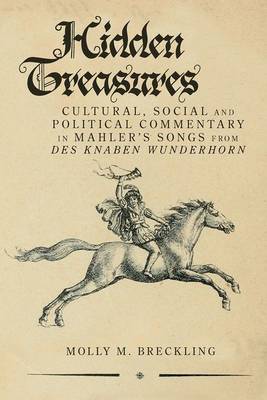
- Retrait gratuit dans votre magasin Club
- 7.000.000 titres dans notre catalogue
- Payer en toute sécurité
- Toujours un magasin près de chez vous
- Retrait gratuit dans votre magasin Club
- 7.000.0000 titres dans notre catalogue
- Payer en toute sécurité
- Toujours un magasin près de chez vous
Hidden Treasures
Cultural, Social and Political Commentary in Mahler's Songs from Des Knaben Wunderhorn
Molly M BrecklingDescription
Gustav Mahler once said, "With song you can express so much more in the music than the words directly say. The text is actually a mere indication of the... hidden treasure within." Over fourteen years, from 1887-1901, he devoted his compositional output almost exclusively to texts and ideas drawn from a collection of German folk poetry entitled Des Knaben Wunderhorn: Alte deutsche Lieder, resulting in twenty-four songs which heavily inspired his first four symphonies. This study explores Mahler's songs based on this poetry and identifies the connections the composer found between these products of Germany's folk past and his own contemporary environment. The songs he created comment on and engage with Vienna's musical life, Freudian theory, Mahler's religious life, his family relationships, his views on women and romance, economic inequality, and wartime violence. As remnants of a folk tradition, the poems contained in Des Knaben Wunderhorn served the purpose of instructing young people on ways of conducting themselves, just as fairy tales do today. Mahler's adaptation of these stories and his updating of them to serve audiences of his own time demonstrate the universality of the lessons these poems provide, both to audiences of Mahler's day, and also to our own.
Spécifications
Parties prenantes
- Auteur(s) :
- Editeur:
Contenu
- Nombre de pages :
- 280
- Langue:
- Anglais
- Collection :
Caractéristiques
- EAN:
- 9781638040408
- Date de parution :
- 01-05-23
- Format:
- Livre relié
- Format numérique:
- Genaaid
- Dimensions :
- 155 mm x 221 mm
- Poids :
- 521 g

Les avis
Nous publions uniquement les avis qui respectent les conditions requises. Consultez nos conditions pour les avis.






